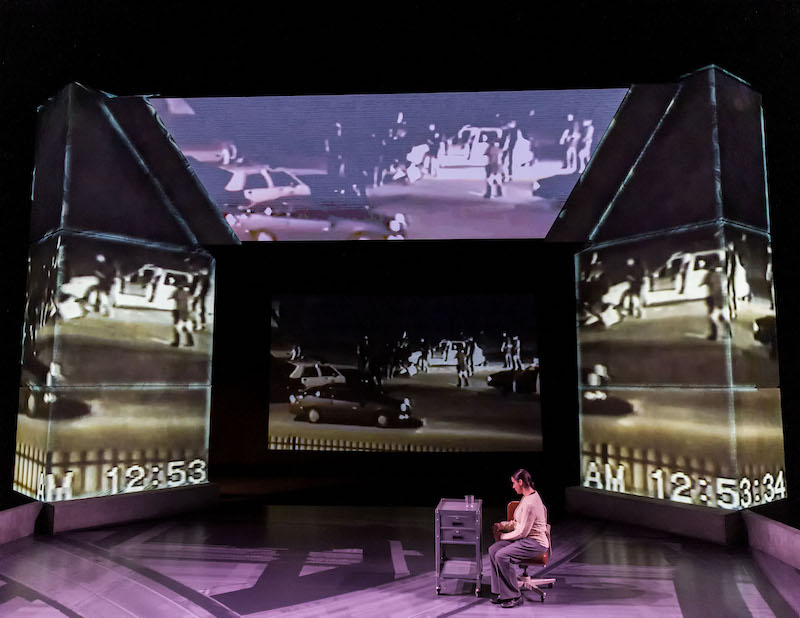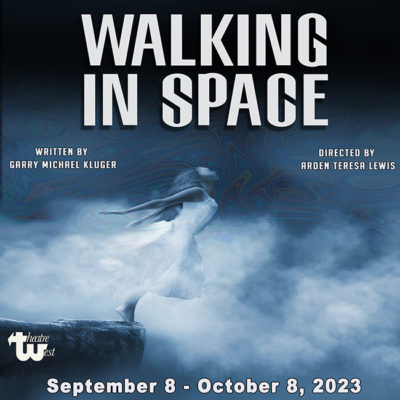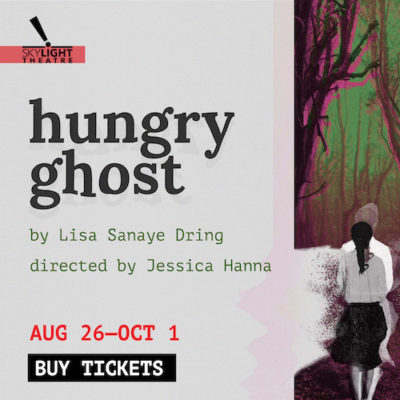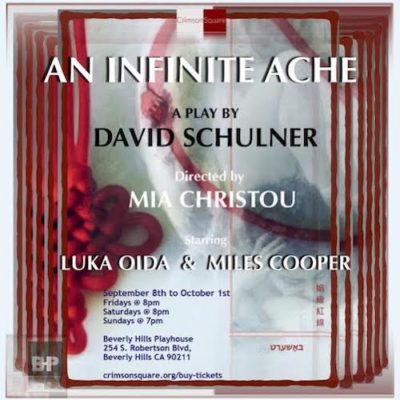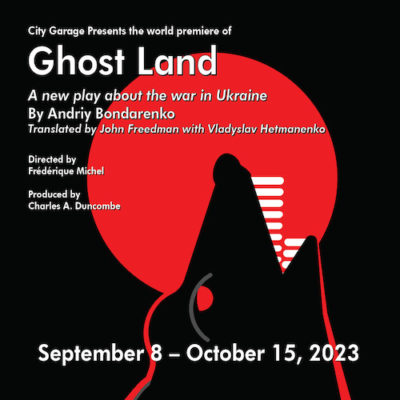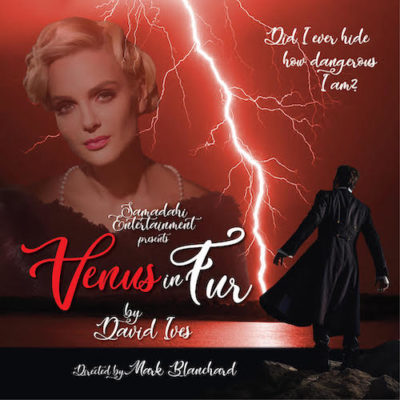Twilight: Los Angeles, 1992
Reviewed by Dana Martin
Mark Taper Forum
Through April 9
RECOMMENDED
Center Theatre Group meets the moment with Twilight: Los Angeles, 1992, conceived, written and revised by Anna Deavere Smith.
The original production premiered on Broadway in April 1994. Smith wrote it as a solo piece, which she developed from hundreds of interviews following the 1992 L.A. uprising. This updated version has expanded to feature five actors who portray multiple roles, and incorporates contemporary references that add even more depth, complexity and perspective to the original.
March, 1991: Rodney King is stopped by police after leading them on a high-speed chase. He’s ordered out of his car and brutally beaten with batons: kicked and punched by four police officers while more than a dozen officers observe. The beating lasts for a reported 15 minutes and is one of the first instances of police brutality caught on camera to receive widespread attention.
On April 29, 1992, the four officers standing trial for King’s brutal assault are acquitted by a jury in suburban Ventura County. The widely televised assault and subsequent acquittal of King’s attackers push the Black community — who have long felt harassed without cause and repeatedly targeted by police brutality — to the breaking point. Outraged, the community pushes back against the verdict with violent protest, looting, rioting, assault and arson. When the violence erupts, the neighboring Korean American community becomes caught in the crossfire of violence and destruction. Distrust and animosity between the Black and Asian communities escalate following the death of Latasha Harlins, a teenager shot and killed by Korean store owner Soon Ja Du less than two weeks after the beating of Rodney King. Korean businesses are specifically targeted and suffer tremendous loss. The riots last approximately six days, causing over a billion dollars in damage, 63 lives lost, over 2,300 people injured and more than 12,000 people arrested.
The play is written as a documentary-style drama and told through each person’s authentic perspective, using verbatim text which adds particular potency. Smith seeks to harness the humanity of every individual she interviewed, while simultaneously holding them accountable for their words and actions — from the rallying cries of Congresswoman Maxine Waters (Lisa Reneé Pitts) to the remorseful statements of Ted Briseno (Hugo Armstrong), one of the police officers accused and later acquitted of King’s assault, to an array of witnesses, activists, jurors, scholars, shop owners, journalists, victims and even police who unabashedly describe treating communities of color as “the enemy.”
The story is brought to life by an outstanding ensemble of actors: Sabina Zúñiga Varela, Hugo Armstrong, Lovensky Jean-Baptiste, Jeanne Sakata and Lisa Reneé Pitts. The performers move seamlessly between characters, each portrayal more well-rounded and compelling than the last, the varying rhythm and nuances of the text masterfully.
The production is directed with focused precision and unrelenting pressure by Gregg T. Daniel. Costume design by Samantha C. Jones helps shape each character in subtle but significant ways. Jones’ attention to character specificity helps further refine already outstanding character portrayals by the cast. Jeff Gardner’s sound design is restrained and effective, complemented by original music by Tru, which creates a timeless feel. Brandon Baruch’s lighting design adds warmth and a sense of fluidity. Efren Delgadillo, Jr.’s scenic design provides a large proscenium for Yee Eun Nam’s fabulous projection design which encapsulates and emphasizes the chaos, rage and widespread structural damage, adding visual historical perspective and intensifying the story’s emotional impact. Some footage is horrifying but impossible to look away from, which is exactly the point.
It’s been over 30 years since the beating of Rodney King was captured on camera for the world to witness. Communities of color continue to be disproportionately targeted by police brutality. The murder of George Floyd, the beating and death of Elijah McClain, the murder of Tamir Rice, of Daunte Wright and so many other innocent Black boys and men who have suffered violence and death at the hands of law enforcement continue to incite protest and public outrage, sparking powerful social movements like Black Lives Matter. The play directly addresses the discrimination experienced by the Asian community, particularly Korean Americans. With AAPI hate crime once again on the rise, the victimization of the Korean American community during the L.A. riots is particularly poignant.
Twilight is the time of day that exists between darkness and light — a fleeting purgatory between one place and another. Twilight: Los Angeles, 1992 traverses the ambiguity of that in-between state through compassionate yet unflinching examination of inequality, racism, injustice and confrontation of the harm inflicted on the Black community at the hands of police — this instance in our own backyard. Just how far have we come as a society since the unrest of 1992? According to Smith not nearly far enough, which is why this story is so important. No justice, no peace.
Mark Taper Forum, 135 N. Grand Ave., Los Angeles; Tues.- Fri., 8 p.m.; Sat., 2:30 p.m. & 8 p.m.; Sun., 1 p.m. & 6:30 p.m.; through Apr. 9. (213) 972-7211 or centertheatregroup.org. Running time: two hours and 35 minutes, with one 15-minute intermission.
NOTE: It’s L.A. Theater Week! Tickets to this show and 75+ additional productions starting at $20 are available now through March 26. Please visit https://www.theatreweek.com/los-angeles/ for more information and to purchase tickets.


